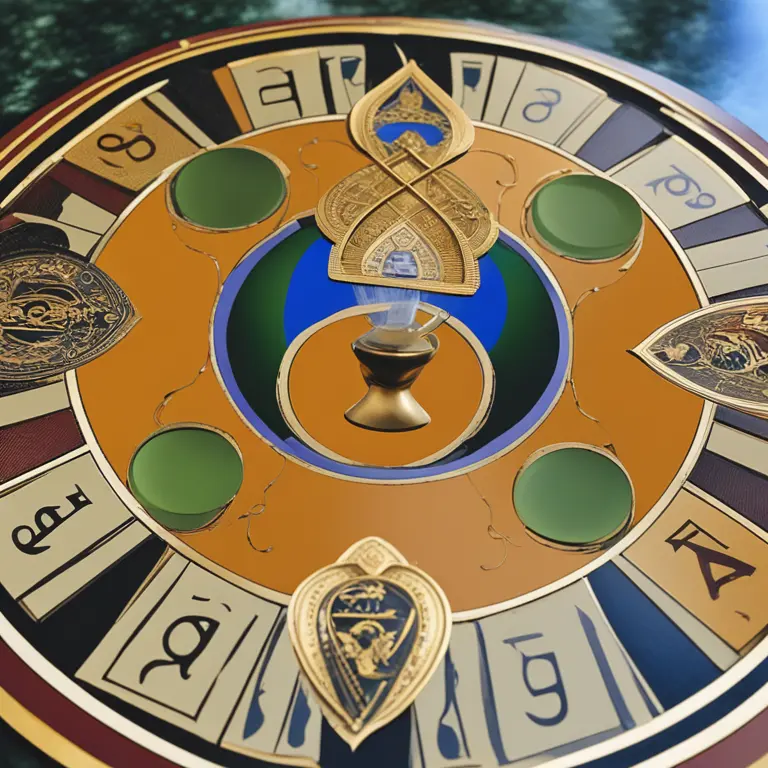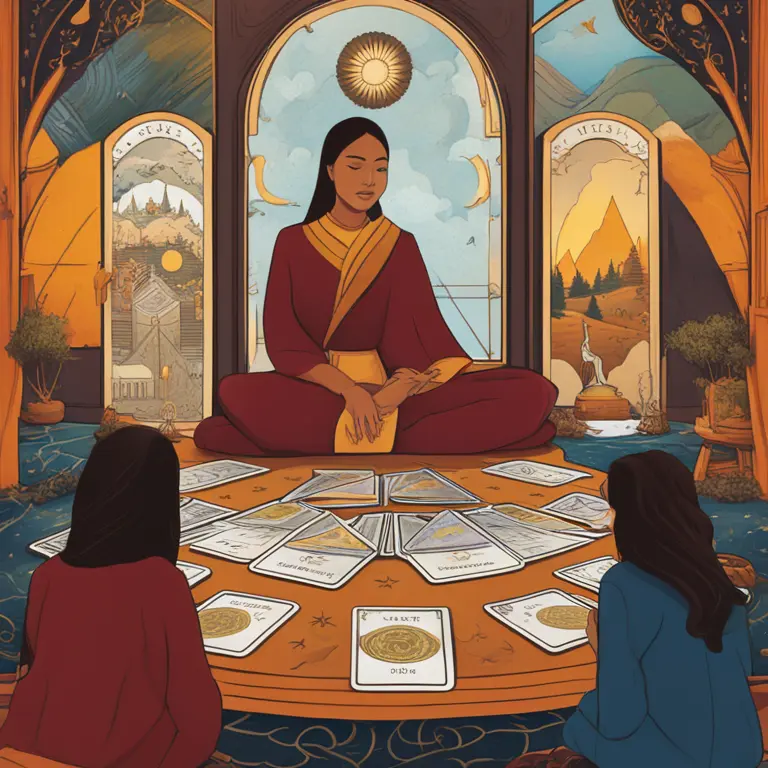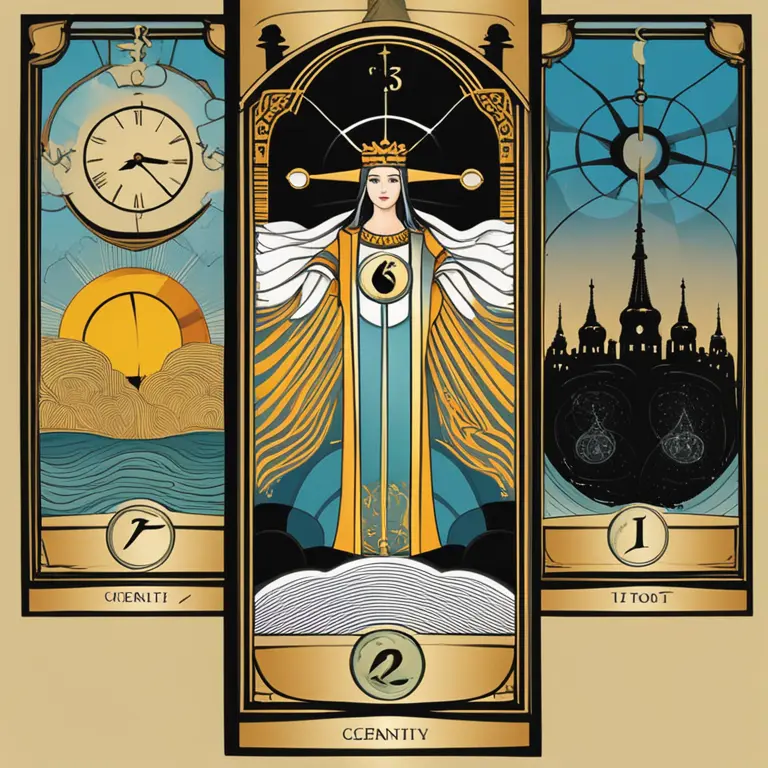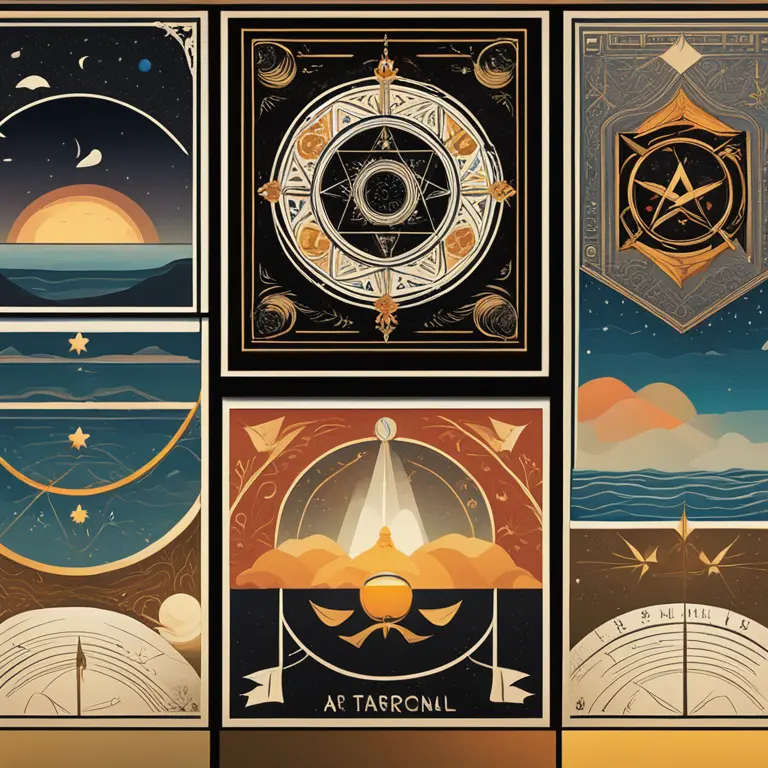
Introduction to Tarot Timekeeping
Despite its ancient roots and enigmatic nature, tarot has found a place in modern-day spirituality and divination. Tarot's allure lies not in the cards themselves, but in the interpretation they inspire. This art form weaves a narrative through symbols and archetypes, leading to a reflection on life's paths and choices. However, when it comes to predicting the when of life's events, tarot reading enters a contentious realm. The common inquiry is clear: Can tarot cards truly predict time, or is it a quest for certainty in an uncertain future?

The Complex Nature of Tarot
Tarot cards are more than just cardboard; they're emblematic and function on personal symbolism and intuition. The 78-card deck encompasses the Major Arcana, spotlighting pivotal life chapters, and the Minor Arcana, detailing everyday affairs. While tarot can offer insight into possible developments, its focus is less on firm predictions and more on guidance. For time-based questions, readers often rely on their own interpretations and the querent's intention—imbuing the cards with temporal meaning that can be both profound and nebulous.

Temporal Insights in Readings
Readers may assign seasonal attributes or connect cards to astrological timelines. For instance, the fiery Wands might speak to summer while Pentacles resonate with autumn's abundance. Additionally, astrological forecasts for 2024 and beyond meld with tarot insights, creating a tapestry that reflects both the cycles of the cosmos and the individual's journey. However, the precision of timing remains elusive, as tarot speaks more eloquently to the 'what' and 'why' rather than the 'when.'

The Limitations of Time Prediction
Professional tarot readers often hesitate to give exact dates for predicted events. The future, as seen through tarot, exists in a fluid state, subject to the free will of individuals and the dynamism of everyday life. Proclaiming a definitive timeline can be misguided, potentially diverting people from their own power to effect change and make decisions. Tarot's strength lies in empowerment, not in providing a chronological countdown to destiny.

Case Studies and Anecdotal Evidence
Anecdotes abound where individuals claim precise timing predictions from tarot readings. Yet, these cases often ignore the instances where predictions falter. Confirmation bias plays a role in how we perceive the accuracy of a reading. Tarot can reflect potential energies or outcomes but pinning down exact dates or times is more often a reflection of happenstance than a testament to the cards' predictive capacity.
Embracing Tarot's True Purpose
Tarot serves as a tool for introspection and personal growth rather than a calendar of the cosmos. Using tarot as a means to deeper self-understanding allows for a richer exploration of one's narrative and the possibilities that lie ahead. While the allure of knowing the future's timeline is compelling, embracing the uncertainty opens one to a more profound and impactful tarot experience that transcends the confines of mere chronology.
Final Thoughts
The relationship between tarot and time remains one of the most fascinating aspects of this mystical practice. While the quest for precise timing through tarot is fraught with challenges, the journey enriches with wisdom, perspective, and self-discovery. In tarot, perhaps it is best to focus on the journey rather than the destination and to seek insights that mold the future through informed choices and reflections in the present.
Published: 1/17/2024
Modified: 1/17/2024
More predictions
Come back here soon to learn more about yourself and your future


Beginner's Guide to Tarot: A Simple Start
Your journey into tarot starts here. Discover the essential insights of tarot reading in a simple, accessible guide for every beginner.


Is He In Love? The Tarot Reveals
Delve into the world of tarot to discover if he harbors feelings of love for you — a mystical guidance to the matters of the heart.